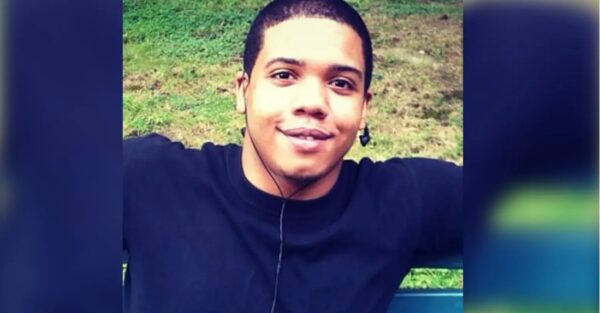Officials are investigating how one New York correctional facility has had ten deaths over the last seven months, questioning why certain protocols were not followed when disciplining inmates, compromising and sometimes violating their civil rights.
The recent death of a Black man left in isolation longer than the state mandate has caused some prison stakeholders to believe there is a significant pattern of neglect by staffers when working with those who are imprisoned.

On Sunday, July 10, Elijah Muhammad died while in custody in Rikers Island, the world’s largest penal colony, around 9:45 p.m. from a suspected drug overdose. Records show the 31-year-old man was placed in jail in June after being arrested on an assault charge, the Daily News reports.
The New York Times reports that an anonymous source, alleged earlier on the day of his death, Muhammad appeared to be disoriented and was unable to walk. It is also alleged that he was dead for hours in his cell before authorities found his cold body.
Records also reveal that Muhammad, less than a week prior to his premature death, was locked in an isolated de-escalation unit for over 30 hours, five times longer than permitted by the recently adopted policy, according to a Board of Corrections member for New York City.
Anisah Sabur of the #HALTsolitary Campaign lamented the tragedy, saying, “It’s just really sad that [the Correction Department] can’t keep people alive. This gentleman died in a cage on a holy day as a Muslim.”
The holy day, according to the Islamic Calendar, is Eid al-Adha, which is technically on Saturday, July 9. This day is to honors the willingness of Ibrahim (Abraham) to sacrifice his son Ismail (Ishmael) as an act of obedience to Allah’s command.
According to this allowance, proposed by the New York City Board of Correction in March of 2021, those who are placed in solitary confinement because they have acted out are to be taken to these de-escalation cells for a short cooling-down period, a maximum of six hours.
Other sources, like the United Nations Mandela Rules, state that prolonged solitary confinement, defining that period as longer than 15 days, should be labeled as human torture.
Robert Cohen, a BOC member, said during his Tuesday board meeting that while visiting the George R. Vierno Center, a jail within the Rikers Island complex, he met with Muhammad and two other detainees in unit 2B.
“When I visited there, there were three men, one was coming in, and two had been there for over 30 hours,” Cohen shared, remembering the meeting just five days before Muhammad transitioned.
“It is not clear from our review there had been any incidents that had brought them in,” he admitted. “They weren’t getting out of their cells at all. They weren’t getting their medication. And one of the men I talked to that day was Elijah Muhammad, who died on Sunday.”
Directing his attention to the DOC Commissioner Louis Molina, who was recently appointed by the new NYC Mayor Eric Adams. He asked the executive, “What have you done to clarify to your staff that the de-escalation units are not just places to dump people?”
Molina responded saying his department has disciplined officers for misusing the de-escalation units in the past and said he will look deeper into the issue surrounding “the gentleman” placed in isolation for too long, affirming, “that shouldn’t have happened.”
Shortly after the conversation, Molina fired the correctional officer directly responsible for Muhammad during his de-escalation period.
In a statement, he said an initial review of the case suggested the department needed to take “immediate action against the staff involved.”
Molina wrote, “We treat every death with the utmost seriousness and understand that it is our mandate to keep every person entrusted to our care safe.”
The commissioner did not share why the officer was terminated. The source believes the officer didn’t follow department rules and may have failed to help or ignored Muhammad while he was suspected of overdosing.
Reform on Rikers Island has been under heavy scrutiny by the prison watchdogs and law enforcement professionals.
As a result, earlier this month, a federal judge upheld new rules under The Humane Alternatives to Long Term Solitary Confinement, or HALT Act that were under attack by the state correction officers’ union, Spectrum News 1 revealed.
The HALT ACT will limit the time an individual can be held in segregated confinement housing, capping the amount of time an inmate in New York’s prisons or jails to 15 days, or 20 days over a two-month period based on the offense committed.
The union believes that the adjustment will take a significant amount of power from the COs and leave them vulnerable to prison assaults and other possible incidents of violence.
Board member Felipe Franco, who attended the most recent board meeting, says abiding by these new laws shows compassion, especially to juveniles and young adults in the system.
He said he personally knows from the BOC tour of units 3B and 3C at the North Infirmary Command earlier in July, that young adults are being housed “in awful spaces, 23 hours a day confined behind Plexiglass with no human contact at all, no programming and actually no clarity on how they can get out.”
Franco stated, “I met with a young person who completely [broke down] and began talking about suicide.”
Prison and death conversations are becoming more and more commonplace.
Ten people have died in New York City since 2022. In June alone, three individuals died while being incarcerated in the city, with one being a 28-year-oldl that died by suicide.
Records from the DOC, show that on Saturday, June 18, Antonio Bradley died three days after being granted compassionate release to Lincoln Hospital in the Bronx from injuries sustained in an attempted suicide on the day of his Friday, June 10, court hearing for a felony firearm charge.
The young man took his sweatshirt, tied it into a noose, and hanged himself in his cell.
On Monday, June 20, two days later, Abilan Carrasquillo, 39, was pronounced dead at the George R. Vierno Center (the same facility Muhammad died in), at 1:30 a.m. Carrasquillo also died of a suspected overdose.
The next day on Tuesday, June 21, Albert Drye, 50, died while being held at the Bellevue Hospital’s Prison Ward at 11:34 a.m.
While the DOC was originally cagey about details surrounding Drye’s death, Molina gave his personal remarks and extended his sympathy to his family.
“Any death in custody is a tragedy, and it’s disheartening to hear about the passing of this individual,” Molina said in a statement. “To learn that a loved one passed away while incarcerated is not only devastating but extremely traumatizing. Our thoughts and prayers are with everyone who loved this individual.”
After Muhammad’s death, Molina said “These are very complex problems that have existed over decades here. We have been in the process over the last six months of rebuilding this entire department.”
He is hoping to address the issues by working to “dismantle” the prison industrial complex’s complicated system.


